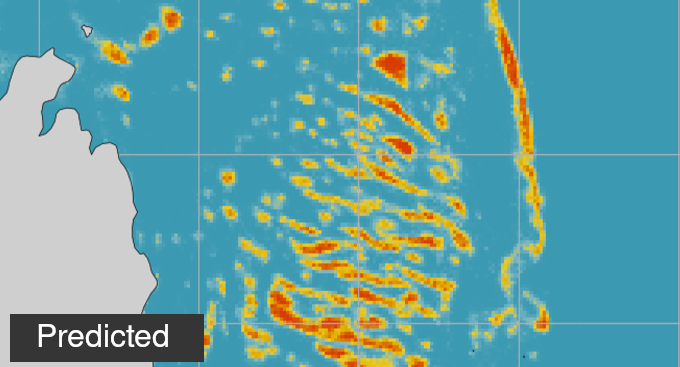Orlando Timmerman
Coral reef systems are incredibly complex systems of animal-plant symbiosis on which millions of people rely for food, protection from coastal storms, and income from tourism. The corals which comprise them are rather fussy, only surviving within certain envelopes of environmental conditions including temperature, aragonite saturation (a metric related to ocean acidification), and salinity. Climate change is gradually changing all of these conditions on a global scale. Understanding how reef systems will respond to these changes is essential to working out how to preserve them for future generations.
Machine learning is excellent at investigating large datasets to extract complex relationships. There are exciting opportunities in multi-modal methods (cleverly combining data from lots of different sources) and physics-informed super-resolution techniques (making data higher-resolution) which have yet to be developed for applications to coral reef science.
My PhD project, which got underway in October 2023, will use machine learning to better understand the combination and time series of environmental conditions necessary for coral reefs to survive. Building on my Master’s thesis – which produced state-of-the-art predictions of present-day coral cover on the Great Barrier Reef – I’ll apply these methods to forecasted environmental conditions under various climate change scenarios. This will generate a map showing future coral survivability, which I hope will inform ongoing conservation methods. For example, it may allow future coral gardening efforts to be focused in areas which have the greatest chance of long-term coral survival; and support the establishment of marine protected areas which recognise the natural – or assisted! – migration of coral reefs.
Along the way, I hope to dive in to a number of complementary machine learning methods, collaborations and internships: especially those involving hands-on marine conservation projects!
More from Orlando Timmerman
A Considerably Constructive Coral Conference: ECRS 2024
Presenting early-stage PhD work at Europe’s largest coral conference

